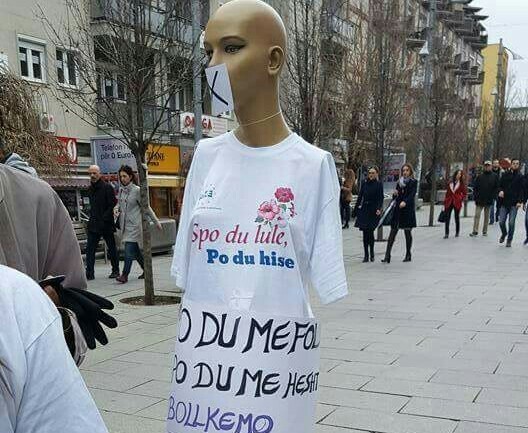Z.B., 40 year-old from Lipjan, is one of the women who asked for her share of inheritance. She heard in television that she, too, has rights for inheritance, and she decided to ask for it. But since her family is big and she has six brothers, none of them supported her, so they did not give her even a small part of their father`s fortune. They divided it equally amongst themselves only.
“I asked for my share of inheritance because even though I am a woman, I knew a part of it belonged to me. But my brothers said ‘you are already married and there`s nothing that belongs to you here. You can come and visit us, but we do not understand how can you ask for your share of inheritance because our father took care of you until the day you got married’. Apart from being humiliated by my brothers, the whole tribe started talking bad about me, as well as my husband`s family,” she says.
As a result, she did not visit her family for years since she was not welcome and had been insulted with the worst possible words.
After some time, she says, her husband died and since they had no children, her brothers-in-law did not give her her husband’s inheritance, and they expelled her from his family.
Thus, she was forced to go back to her family where, as she says, she`s humiliated and insulted just because she asked for her share of inheritance.
According to the sociologist Sibel Halimi, in many Kosovar families all around Kosovo (specifically those that are poor or from rural zones), women do not inherit when their fathers or husbands pass away. This is most present in those families when the woman has no children/antecessors. In most of the cases, if the person who passed away has no brother or son, the property is given to the man who is his closest blood relative.
“Women`s rights remain one of the main challenges for the development of Kosovo`s society, specifically relating to their right to inherit property and equally participate in economy. Kosovo`s laws state that men and women have equal rights, but the culture, tradition, economic conditions and the level of our education had a negative impact in reaching the equality that is lawfully guaranteed,” she says.
She also says that as a result of the traditional mentality, many women in Kosovo do not inherit property. Moreover, there are cases when they voluntarily give up from their inheritance, thus leaving it to the other family members, and the property is divided without listening to women`s opinion.
Sanije Grajçevci from “Aureola,” an NGO that creates awareness-raising and advocating campaigns for gender equality, as well as lobbying and networking in order to make it possible to all the women to actively participate in all levels of society, says that women, especially those who live in rural areas, are less informed and less aware for their rights. This situation is hardened even more by the perceptions, prejudices and patriarchal practices which impede the implementation of the lawful rights of women.
“Women in Kosovo, in most of the cases, are not given the right to inherit from their family since the inheritance is divided proportionally, only among the men of the family. Even during divorce, they often give up the common fortune gained during the marriage, hoping that they get it according to the tradition since they are not well informed of the existing laws,” she says.
She added that all this happens because of the lack of knowledge to seek their rights, but also because of the patriarchal mentality.
According to a research project done by Kosovo`s Women Network in 2015, only 19% of all surveyed women have property of their own, compared to 79% of the surveyed men.
There are plenty of laws related to gender equality in Kosovo and according to them the fortune of the family should be divided equally (50%-50%). According to the Law for Family, the division of the common fortune of the spouses can be completed during the marriage or when it ends in a divorce.
Besarta Breznica








